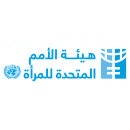Consultant: Supporting the Revitalization of the Serious Cas
Supporting the Revitalization of the Serious Case Review Mechanism
Background
UN Women (UNW), grounded in the vision of equality enshrined in the Charter of the United Nations, works for the elimination of discrimination against women and girls; the empowerment of women; and the achievement of equality between women and men as partners and beneficiaries of development, human rights, humanitarian action and peace and security. Placing women’s rights at the centre of all its efforts, the UN Women leads and coordinates the United Nations system efforts to ensure that commitments on gender equality and gender mainstreaming translate into action throughout the world. It provides strong and coherent leadership in support of Member States’ priorities and efforts, building effective partnerships with civil society and other relevant actors.
UN Women’s triple mandate, along with its global network and deep policy and programming expertise, continues to endow the Entity with a unique capacity to: (i) support Member States to strengthen global norms and standards for gender equality and women’s empowerment, and mainstream gender perspectives in other thematic areas; (ii) promote coordination and coherence across the UN system to enhance accountability and results for gender equality and women’s empowerment; and (iii) undertake operational activities to support Member States, upon their request, in translating global norms and standards into legislation, policies and strategies at country level.
UN Women plays an innovative and catalytic role in the State of Palestine since its inception in 1997 (as UNIFEM). In line with the national priorities, the work of UN Women for the period 2023-2025 is aligned with three of the Palestine United Nations Sustainable Development Cooperation Framework’s (UNSDCF) outcomes:
• Palestinians have greater access to economic opportunities that are inclusive, resilient, and sustainable, including decent employment and livelihoods opportunities in an empowered private sector.
• Palestinians, including the most vulnerable, have equal access to sustainable, inclusive, gender responsive and quality social services, social protection, and affordable utilities.
• Palestinian governance institutions, processes, and mechanisms at all levels are more democratic, rights-based, inclusive, and accountable.
Its three-year Strategic Note supports the efforts to achieve measurable results in country in terms of four UN Women global Strategic Plan impacts (2022-2025): (SP Impact 1). Governance and participation in public life; (SP Impact 2). Women’s Economic Empowerment; (SP Impact 3). Ending Violence Against Women and Girls and; SP Impact 4. Women peace and security, Humanitarian & Disaster Risk Reduction.
In line with the Palestinian Government’s commitment to achieve gender equality and combat Violence Against Women (VAW), and in full partnership with the Justice, Security and Social Sectors, UN Women within its joint programme with UNDP and UNICEF- “ Reinforcing equal access to justice for all Palestinians - SAWASYA III” is supporting the Justice, Security and Social institutions to mainstream gender into their plans, procedures and policies, and develop and provide gender responsive services to women victims and survivors of violence. Within this framework, UN Women is providing technical support to the Ministry of Justice (MoJ), High Judicial Council (HJC), Palestinian civil police (PCP) and the Attorney General Office (AGO) to mainstream gender into their policies, plans, procedures and practices.
In line with this, UN Women as part of its strategic partnership with the Ministry of Women’s Affairs has supported the work of the serious case review committee under the leadership of the High National Committee to Combat Violence. In March 2015 UN Women supported the Minister of Women’s Affairs (MoWA) and the members of the National Committee for Combating Violence against Women in developing the first serious case review report (SCR). For this purpose, the National Committee for Combating Violence against Women has formed a technical committee (TC) to lead this process according to the work mechanisms developed by an international expert.
The SCR mechanism aims to enhance the protection, security and justice services provided to women victims and survivors of violence by different stakeholders and actors. It is based on reviewing and developing contextual legal and procedural analysis based on survivor- centered approach for critical cases of violence against women, to identify and analyze the gaps in the services provided to women, including the applied practices, level of coordination amongst service providers; level of engagement of the survivors in the decision making process amongst others.
Within Sawasya III programme, UN Women plans to recruit a national expert to support revitalizing the work of the SCR committee and developing two SCR reports.
The assignment includes the following two main objectives:
- To support the MoWA and the SCR technical committee in reviewing\updating the committee’s Terms of Reference, which defines its roles and responsibilities amongst other issues.
- To support the Committee in selecting and reviewing two serious cases of violence against women and developing related reports for the selected cases.
The consultant will be reporting to UN Women Sawasya Programme Specialist and will be supported by the Women’s Security Analyst, the focal point at the MoWA, and the Finance Associate who will be the point of contact on the contract and payment issues.
Duties and Responsibilities
Inception phase:
- To develop an inception report that includes a detailed description of the work plan, deliverables, time frame and methodology.
- To share the inception report with UN Women for review and approval.
- To meet with the MoWA an UN Women’s technical team to discuss the assignment’s objectives, methods and tools that will be used, and the main deliverables.
Implementation phase:
a) Revitalization of the SCR Technical Committee:
- To conduct a desk review on relevant national, regional and international references including the previously developed documents such as the first SCR report and the Technical Committee procedures and Terms of Reference.
- To work closely with the MoWA relevant staff members and the technical committee members to ensure active engagement of all members in the process.
- To facilitate the technical committee meetings, including supporting in setting the meetings’ agenda items and documenting the proceeding of the meetings.
- To support the Technical Committee in developing operational\action plan.
- To support the Technical Committee in reviewing and updating the Technical Committee procedures and Terms of Reference including its roles, responsibilities and work mechanisms with the full engagement of the MoWA relevant staff and the technical committee members.
- To build consensus among the Committee’s members regarding the revised\updated procedures and Terms of Reference.
b) Develop two serious cases review reports:
- To facilitate meetings between the Technical Committee members and support selecting two serious cases of violence against women in line with an agreed upon criteria for revision.
- To support the Technical Committee in developing the work mechanism, work plan with timeframe, roles’ distribution, and methodology.
- To support the Technical Committee in setting data gathering methods and ethics.
- To work closely with the technical committee in defining the needed data and information related to the selected cases and its sources- including- when possible- to support the data collection process.
- To work closely with the technical committee in reviewing and analyzing the gathered data and information.
- To support the technical committee in developing the SCR report’s methodology and structure.
- To support the TC in writing\drafting the SCR reports. The report should reflect the analysis of the cases, the gaps in policies and interventions by stakeholders, and recommendations to improve protection and coordination among relevant sectors.
- To consult with women and civil society organizations to learn about their expectations and roles in the process.
- To ensure participatory approach during all phases of the consultancy work and ownership of the process as well as of the final deliverables.
- To submit two SCR reports that are approved by the technical committee and the MoWA.
Final report:
- To submit a final narrative report that includes a description of the assignment, the achievements, used methodology, lessons learned and recommendations for future interventions.
Deliverables:
Deliverable
Expected completion time (due day)
Detailed work plan, including objectives and assignment methodologies,
15 Days from the signature of the contract
An approved amended Terms of Reference for the Technical Committee and two SCR reports.
5 months from the signature of the contract
Submission of a final report, that includes description of methodology used, findings and recommendations.
A week before the end of the contract
Consultant’s Workplace and Official Travel:
This is a home-based consultancy with frequent visit to partners' institutions.
Jobs.ps, Ltd. All Rights Reserved.
Competencies
Core Values:
- Respect for Diversity
- Integrity
- Professionalism
Core Competencies:
- Awareness and Sensitivity Regarding Gender Issues
- Accountability
- Creative Problem Solving
- Effective Communication
- Inclusive Collaboration
- Stakeholder Engagement
- Leading by Example
Please visit this link for more information on UN Women’s Core Values and Competencies:
https://www.unwomen.org/en/about-us/employment/application-process#_Values
FUNCTIONAL COMPETENCIES:
- Sound knowledge of international standards on human rights, gender justice and women rights.
- Proven Experience in the field of protection and access to justice and security.
- Strong capacity to establish, build and sustain effective relationships with clients, demonstrating understanding of client’s perspective; anticipates client needs and addresses them promptly.
- Strong ability to effectively interact with technical and non- technical end users in a cooperative and helpful manner.
Required Skills and Experience
Education and Certification:
- A Bachelor’s degree in law, human rights, gender studies, criminology, sociology or related discipline. (Max. 10 points)
Experience:
- A minimum of 5 years of professional experience in the fields of gender justice, VAW and protection, including working on national protection mechanisms. (Max. 20 points)
- At least 2 previous assignments related to data gathering, reporting and analysis. (Max. 15 points).
- At least 3 previous experiences in facilitation and coordination roles. (Max. 20 points)
- Experience in providing legal or social services for women victims of violence is a strong asset. (Max. 10 points)
- Experience with the security and/or justice, social systems and CSOs is a strong asset. (Max. 10 points)
- Experience with the UN system or/and International Organizations is an asset. (Max. 5 points)
- The candidate should submit a sample of previously developed analytical reports or policy papers on women’s protection and /or access to justice. (Max. 10 points)
Languages:
- Fluency in Arabic and professional knowledge in English
How to Apply
- Personal CV or P11 (P11 can be downloaded from: www.unwomen.org )
Application Link: jobs.undp.org







